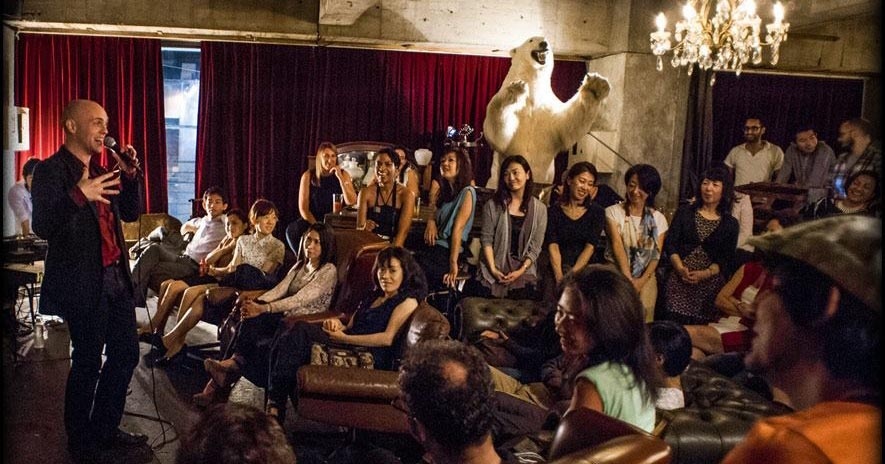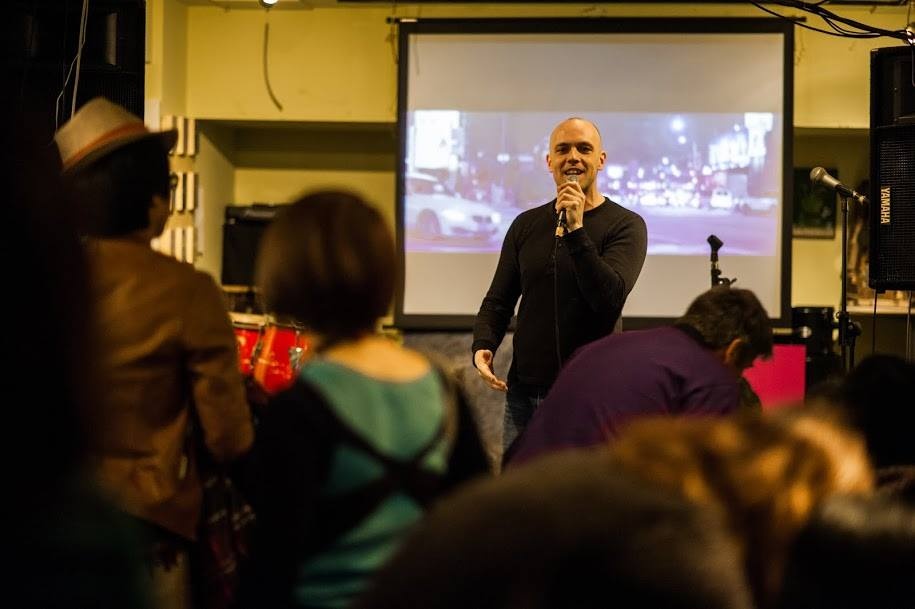Performing Western-Style Stand-up in Japanese

The first thing both foreigners and Japanese people ask when I say I perform stand-up comedy in Japanese is, "Don't Japanese people have a different sense of humor?"
By Dave Gutteridge
When I say "stand-up," I mean the kind of comedy common in English-speaking cultures, with one person onstage holding a microphone, telling stories and jokes on all manner of topics. If there's any one unifying theme to stand-up comedy, it's that there's a freedom to go anywhere a topic takes you, even to express the most controversial ideas. This seems quite different from the overtly silly and slapstick comedy that most people associate with Japan.
The short answer I give to the question is, "No." My experience has been that people all over the world laugh at the same things, though you do have to tweak the presentation to get them from where they are to where you are. Recently I performed a stand-up comedy revue show with about seven other foreign performers doing "Western"-style stand-up comedy to a room of about a hundred Japanese people, and the response was overwhelmingly enthusiastic.

Why do you see so much of the silly stuff on television? It has little to do with Japanese culture and a lot to do with the media marketplace. In Japan, mass media is owned by a very small number of companies with very tight relationships with both advertising sponsors and government regulatory bodies. There's no overt censorship, and everyone in Japan has freedom of speech, but if a joke might make a sponsor a little... uneasy... then everyone agrees it's better not to risk it.
Slapstick is the style of comedy you see most in Japan for one simple reason: it's the kind of comedy that says the least. There may be attempts to "shock" by getting naked or jumping out at someone unexpectedly, but no controversial opinions are expressed, no boats are rocked, cut to commercial.
But Japanese people, like people all around the world, are just as tired of work or frustrated with dating or having a hard time raising their kids, and these are things that unite us, especially through laughter. The best part about performing comedy in Japanese has been talking with the audience, onstage and off, and seeing the side of Japanese culture that is so seldom seen on television.



